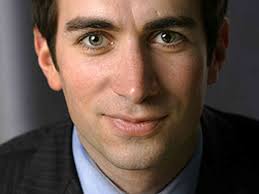Controlling the Message: Targeting Press TV
by Stephen Lendman
Washington and Israeli Lobby pressure bear full responsibility. At issue is blatant censorship. It’s suppressing truth and full disclosure. It’s controlling the message. It’s preventing viewers from getting vital news, information and analysis. Press TV features it daily. It provides a vital service.
It’s must viewing. It tells viewers what they most need to know. It does so accurately, thoroughly and truthfully. It’s too important to lose. It’s targeted for that reason.
Doing so manufactures consent. It’s a euphemism for mind control. In 1917, George Creel first used it. He turned pacifist Americans into raging German haters.
Alex Carey studied corporate propaganda. He inspired others to do so. His book titled “Taking the Risk Out of Democracy: Corporate Propaganda versus Freedom and Liberty said:
“The twentieth century has been characterized by three developments of great political importance: the growth of democracy, the growth of corporate power, and the growth of corporate propaganda as a means of protecting corporate power against democracy.”
[pullquote] “The twentieth century has been characterized by three developments of great political importance: the growth of democracy, the growth of corporate power, and the growth of corporate propaganda as a means of protecting corporate power against democracy.” [/pullquote][pullquote][/pullquote]
State-sponsored propaganda works the same way. Americans are the most over-entertained, under-informed people anywhere. They believe most anything they’re told ad nauseam. They’re easy marks. Big Lies seduce them. They launch wars. Media scoundrels repeat them. They’re weapons of mass deception. They convince people wrong is right. Alternative voices are marginalized.
Press TV’s one of the best. It’s too important to lose. Iran bashing is longstanding. America and Israel bear full responsibility. Independent governments aren’t tolerated. Truth is verboten. Press TV’s a longstanding target. Suppressing its message is prioritized. Last fall, 27 EU nations blocked 19 Iranian television and radio stations.
European satellite provider Eutelsat sold its soul. It went along. It agreed to silence them across Europe. A statement said, “We terminated the contracts because it was the order of the European Commission. We have to follow.”
No one’s obligated to obey illegal diktats. Doing so reflects complicity. Months of on and off jamming preceded Eutelsat’s announcement. Its own charter obligates it to “adher(e) to the principle of non-discrimination and fair competition in defining its strategy and carrying out its operations.”
Michel de Rosen heads it. He’s CEO. He sits on corporate boards. From 1996 – 1999, he was a French Ministries of Finance and Defense official. He’s an Israeli citizen. He’s hardline. He’s a committed Zionist. He supports Israel’s worst crimes.
Press TV is Iran’s 24-hour English language news service. It’s broadcast to most parts of the world. It’s done so by satellite, cable and online. Its US presence is limited through intermediary companies. Major cable operators Comcast and Time Warner exclude it. So do media conglomerates Disney, Viacom and Fox.
Last October 12, Britain’s Office of Communications (Ofcom) banned its broadcasts. Allegedly it was for noncompliance with UK law. It was brazen censorship. It was about silencing vital news, information and analysis. Ofcom claimed it bowed to government and royal family pressure. Doing so violates UK media law.
In May 2011, Ofcom said Press TV breached rules “by airing a 10 second extract from an interview with Iranian-born Canadian journalist Maziar Bahari while (detained) in an Iranian prison.”
Britain’s Foreign Office told Washington’s London embassy that it was “exploring ways to limit (Press TV’s) operations….”
In January 2012, London’s Guardian headlined “Suppressing Press TV is deplorable – Ofcom should restore its license now,” saying:
“The suppression of any media outlet anywhere in the world is an affront to freedom of expression and appalling to contemplate.”
“That a British agency should be responsible for such an act of repression is scarcely credible. Its UK license should be speedily restored.”
Suppressing dissent is official US policy. So is marginalizing alternative views. Washington wants Press TV silenced. The FY 2013 National Defense Authorization Act (NDAA) bans it from US airwaves. Broadcasters and cable channels exclude it. Former CIA director William Casey once said:
“We’ll know our disinformation program is complete when everything the American public believes is false.”
Former CIA director William Colby said the Agency “owns everyone of any significance in the major media.” At issue is controlling the message.
Obama’s Treasury Department is involved. On February 6, sanctions against Iranian officials were linked to alleged censorship. Treasury’s Office of Foreign Assets Control (OFAC) targets IRIB (Islamic Republic of Iran Broadcasting).
It falsely claimed Iran uses “state-run media transmissions to trample dissent.” It duplicitously “point(ed) to distorted or false IRIB news reports.” It prohibits Press TV and other Iranian media in America. On July 1, Press TV was excluded from satellite operators Hotbird 13-B, Eutelsat 25-C, Eutelsat 21-B, Eutelsat 8-West-A, Intelsat 20, Galaxy 19, and Optus D-2. I
Iran’s Spanish-language channel Hispan-TV was removed from Eutelsat 8 West A, Eutelsat 7 West A, and Intelsat 21.
Its Arabic news channel al-Alam was banned from Eutelsat 8 West A. Its general entertainment English and Arabic television network iFilm was pulled from Eutelsat 21-B, Eutelsat 25-C, Hotbird 13-B, Eutelsat 7 West A, Intelsat 20, and Optus D-2.
Its al-Kawthar channel was taken off the satellites Eutelsat 8 West A, Eutelsat 7 West A, and Galaxy 19.
These moves followed International Telecommunications Satellite Organization (ITSO) officials asking Washington and major satellite operator Intelsat to stop banning Iranian channels.
Intelsat admitted acceding to US pressure. Israel exerts its own. Its US lobby controls Washington. European operators lied. They claimed they’re abiding by anti-Iranian sanctions. They don’t apply to Iranian media.
Media expert Nader Talebzadeh said:
“A new voice that gives alternative views (and) alternative debates with high-caliber critics of the West from the West is a sweat, and that’s why they want them to be off the air.”
Article 19 of the Universal Declaration of Human Rights states:
“Everyone has the right to freedom of opinion and expression; this right includes freedom to hold opinions without interference and to seek, receive and impart information and ideas through any media and regardless of frontiers.”
Article 10 of the European Convention of Human Rights states: “
“Everyone has the right to freedom of expression. This right shall include freedom to hold opinions and to receive and impart information and ideas without interference by public authority and regardless of frontiers.”
Media activists call attacking Iranian media an assault on free expression. America’s First Amendment protects it. Without it all other freedoms are at risk. It’s too important to lose. Press TV viewers reacted. One said its targeted for “expos(ing) Western powers’ hypocrisy, injustices, atrocities, and all other issues they don’t want the world to know.”
Another said “Press TV doesn’t toe the line. How many times have you said America is great and god’s chosen country? Anyone who disagrees with the American narrative is wrong at best. They are intentionally blind to the truth.”
A further comment stressed Zionist influence. Its “propaganda machine” doesn’t want its lies exposed. “Whatever happens worldwide, if deemed unfortunate to the case of the Zionists, it is not mentioned at all.”
National Union of Journalists head Dominique Pradalie criticized EU censorship.
“The National Union of Journalists, which I represent,” she said, “supports freedom of expression and free access to information.”
“Censorship is fine only if someone is trying to violate someone else’s human rights, but here that’s not the case at all.”
“We must be vigilant against all types of censorship. Citizens have a constitutional right to have access to foreign media sources. It cannot be prevented.”
Kevin Barrett co-founded the American Muslim Political Action Committee. He’s an author, radio host, and former university lecturer.
He said “(l)et’s face the facts here. (Treasury’s) Office of Asset Control was handed over to a bunch of hardline neoconservative arch Zionist Likudnik radical Israeli partisans.”
They were “given carte blanche authority by the US government to go after Iran in an all-out monetary and ideological war.”
They’re “trying to shut down the free flow of ideas back and forth between the West and Iran. If they have nothing to fear from Press TV, al-Alam, and other Iranian channels, this wouldn’t be a problem.”
“It’s a case of egregious hypocrisy these people endlessly blabber on about free speech and democracy.” They tolerate none of it at home or abroad. They want truth silenced.
“The real issue is that Iran uses soft power.” It does so through television and other communications. It “gets the truth to” Western audiences. Doing so “mortally threatens” Zionist lies and distortions. Its response is “kill the messenger.”
It’s not working. Growing numbers of Western viewers object. Press TV said:
“The truth cannot be concealed forever, and those that want to hear the voice of Iranian media will inevitably find a way to watch the channels of their choice.”
“Iranian channels are also doing their utmost to ensure that their audience can have easy access to their broadcast.”
Online surveys show 92% of respondents call banning Iranian media an assault on free speech. US/EU/Israeli actions are lawless. Might makes right doesn’t wash. International law matters. Free-flowing information is fundamental. People have a right to know. Modern technology makes it possible. Western subversion won’t work. Truth won’t be silenced. It’s too important to lose. Without it, all else is lost.
ABOUT THE AUTHOR
Stephen Lendman lives in Chicago. He can be reached at lendmanstephen@sbcglobal.net. His new book is titled “Banker Occupation: Waging Financial War on Humanity.”
http://www.claritypress.com/LendmanII.html
Visit his blog site at sjlendman.blogspot.com.
Listen to cutting-edge discussions with distinguished guests on the Progressive Radio News Hour on the Progressive Radio Network.
It airs Fridays at 10AM US Central time and Saturdays and Sundays at noon. All programs are archived for easy listening.
http://www.progressiveradionetwork.com/the-progressive-news-hour










